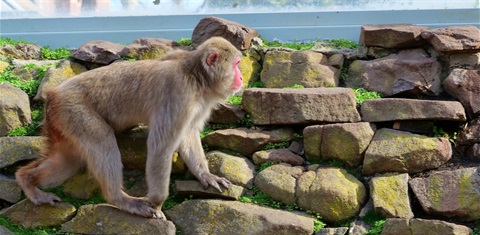
The City of Launceston will restrict future breeding of City Park's Japanese macaque troop if a recommendation from Council officers is adopted next week.
A condition of the Council's Wildlife Exhibition Licence, issued under Tasmania's Nature Conservation (Wildlife) Regulations 2021, is that breeding is overseen in accordance with a species management plan.
As Japanese macaques are no longer deemed suitable for live importation under the Federal Environmental Protection and Biodiversity Conservation Act 1999, it's not possible for the Council to introduce new macaques to the City Park.
Due to the inability to introduce new genetic diversity into the troop and to prevent inbreeding, Council officers have recommended that the species management plan for the troop be aimed at preventing all future reproduction.
A decision to prevent future reproduction would ultimately result in no Japanese macaques living in City Park twenty or so years from now.
City of Launceston Mayor Matthew Garwood said he understood next week's discussion on this matter would be of widespread community interest.
"Japanese macaques have been exhibited in Launceston's City Park since 1981," Mayor Garwood said.
"They were originally received as a gift from our Sister City, Ikeda and have been linked with Launceston ever since.
"In 2000, it was identified that the troop carried the herpes B virus, which is common in macaque monkeys, and the Council of the day considered three future options for the troop as a result — euthanasia, re-homing or moving to a new management model.
"At that time, the Council made a decision to keep the macaques and to attempt to introduce new genetic stock. However, this was ultimately unsuccessful.
"We know community sentiment toward keeping animals in captivity has shifted a lot since 1981 and it's now time we consider this issue with fresh eyes, with the welfare of the troop as our top priority.
"As it's not possible to introduce new genetics into the troop, we have to now instead consider how the City Park troop is managed into the future in a way that is caring and humane."






